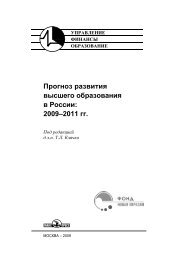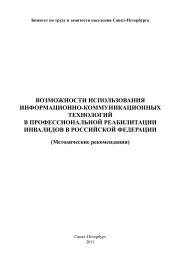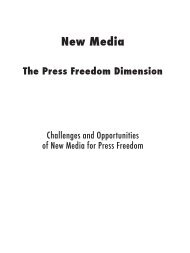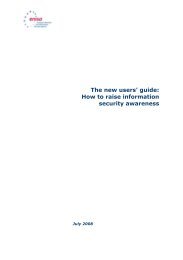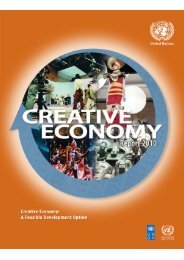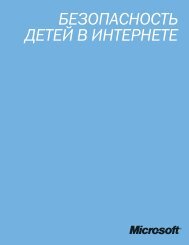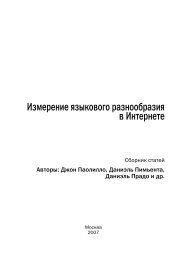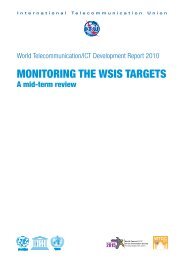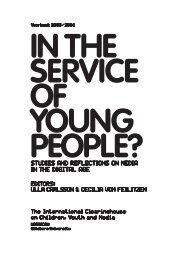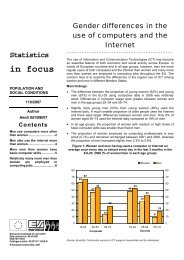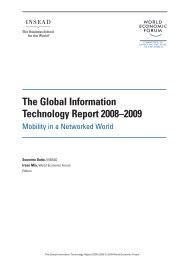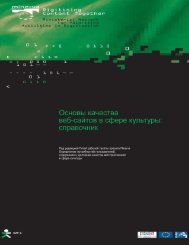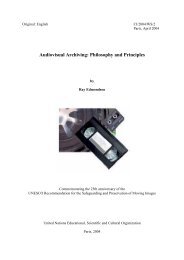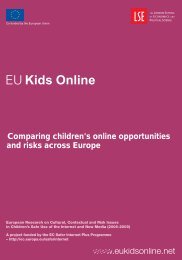Model curricula for journalism education for developing countries ...
Model curricula for journalism education for developing countries ...
Model curricula for journalism education for developing countries ...
Create successful ePaper yourself
Turn your PDF publications into a flip-book with our unique Google optimized e-Paper software.
106<br />
Week 21<br />
Seminar and workshop: Oral presentation and discussion of the third special report<br />
on a political party campaign or a candidate campaign. Reading <strong>for</strong> week 22: Fox<br />
(2001), Levin (2000), and Stein (2006).<br />
Week 22<br />
Lecture: Event coverage. Types of political events. Elections, conventions, meetings,<br />
speeches, press conferences. Following the news, following the candidate, following<br />
the officials. Actors, messages, gestures, audiences, political environment.<br />
One event, different point of views. News judgment. Critical analysis of political<br />
implications. Assignment: coverage of a press conference held as a part of a political<br />
campaign. Explanation of the fourth special report (due in week 30): students will<br />
conduct a 2500-word investigative report about financing an election. They will<br />
work in teams of three members each. Students will find out the public and private<br />
sources of an specific political campaign, as well as the fundraising techniques used<br />
by a political party or a candidate. Reading <strong>for</strong> week 23: Cook (1998), McNair (2000),<br />
Fox (2001), Levin (2000), and Stein (2006).<br />
Week 23<br />
Lecture: Sources of in<strong>for</strong>mation. Classification. Material sources of in<strong>for</strong>mation:<br />
archives, documents, statistics, press releases, newsletters, video tapes, papers.<br />
Human sources of in<strong>for</strong>mation: bureaucrats, politicians, entourage, spokesmen,<br />
in<strong>for</strong>mers, advisors. How to deal with sources of in<strong>for</strong>mation. Techniques.<br />
In<strong>for</strong>mation to be published, in<strong>for</strong>mation <strong>for</strong> further research. Seminar: practice of<br />
managing in<strong>for</strong>mation (provided by the teacher) from different sources. Reading <strong>for</strong><br />
week 24: Cook (1998), Levin (2000), and Stein and Burnett (2006).<br />
Week 24<br />
Lecture: Sources of in<strong>for</strong>mation and levels of political in<strong>for</strong>mation. Political interests<br />
of sources of in<strong>for</strong>mation. Favorable, unfavorable, official and technical sources of<br />
political in<strong>for</strong>mation. Building a trusting relationship with sources of in<strong>for</strong>mation.<br />
Quotations, differences and purposes. On the record and off the record in a political<br />
environment. In<strong>for</strong>mation with undefined origins. Avoiding the role of political<br />
messenger. Seminar: practice of gauging political in<strong>for</strong>mation (provided by the<br />
teacher) from different sources. Reading <strong>for</strong> week 25: The AP Stylebook (2006), The<br />
Chicago Style Guide (2003), Kuhn and Neveu (2002) and McNair (2000).<br />
Week 25<br />
Lecture: Processing in<strong>for</strong>mation. How and where to gather political in<strong>for</strong>mation.<br />
Fighting <strong>for</strong> keeping the agenda initiative. Developing story ideas. Checking,<br />
balancing and providing a framework <strong>for</strong> political in<strong>for</strong>mation. Methods of ensuring



